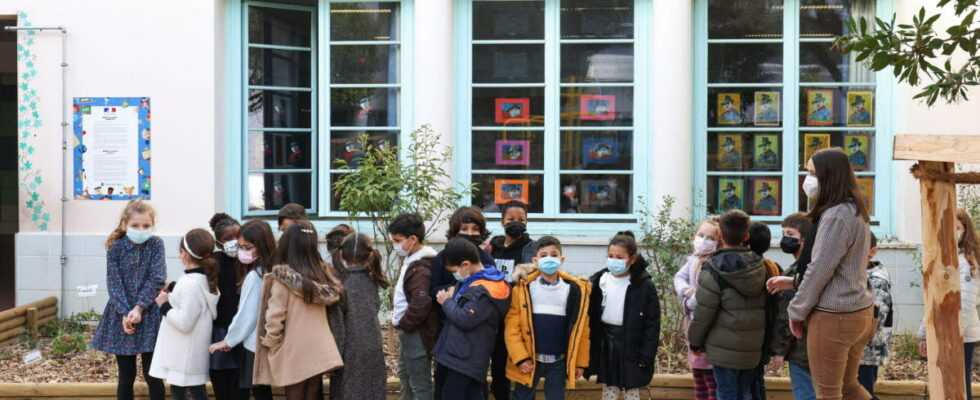Isolation, depression, unemployment… The collateral effects of the confinements and health measures implemented in France in 2020 and 2021 to combat the Covid-19 epidemic are numerous. Among them, the increase in cases of overweight and obesity in young children, as noted by a study carried out by the research services of the maternal and child protection (PMI) of Val-de-Marne, the results of which were published this Tuesday in the weekly epidemiological bulletin of Public Health France.
The researchers behind the study relied on a very large corpus, since they studied the data of health checks in nursery school (BSEM) carried out on all children in middle section. Thus, by comparing the weights of more than 48,000 four-year-old schoolchildren from 2018 to 2021 in the department, the authors noted that the share of children with obesity had almost doubled, from 2.8% in 2018- 2019 to 4.6% in 2020-2021. The proportion of overweight schoolchildren has also increased: it rose from 8.6% to 11.2% over the same period.
In fact, the proportion of children with a “normal” weight has decreased.
Evolution of the proportion of obese, overweight or normal weight children according to the study carried out by the research services of the maternal and child protection of Val-de-Marne.
Zoom on the evolution of the share of obese and overweight children according to the study carried out by the research services of the maternal and child protection of Val-de-Marne.
“All other things being equal, the risk of being overweight is significantly higher in 2020-2021 and the risk of being obese is significantly higher in 2020-2021 also compared to the reference year 2018-2019” , concludes the study.
Less physical activity and change in diet
Researchers have several hypotheses to explain this weight gain during confinement and other periods of health restrictions.
“There was probably a different diet and less physical activity. But we do not know in which direction it is going, because these two factors were upset during the crisis, ”notes Marie-Laure Baranne, head of the studies, research, health certificates department of the PMI of Val-de-Marne and lead author of the study.
The fact that sports facilities were no longer accessible during the restriction periods, that classes were closed or that sports times were reduced in schools due to health protocols are all factors that have not encouraged children’s activity.
Especially since, as Marie-Laure Baranne points out, the risks of overweight and obesity can easily appear “when a child is at an important point in his growth curve and there is more caloric intake than expenses “.
Girls and schoolchildren in PWRs most affected
All children have not been equal vis-à-vis this weight gain.
The study points to the fact that those educated in REP establishments, and even more so in REP+ (priority education network) were proportionally more affected by the increase in obesity and overweight between 2018-2019 and 2020-2021. However, Marie-Laure Baranne and her team expected such results in these areas where children are more often from disadvantaged backgrounds:
We know that social differences have an impact on the weight of children and that there are more overweight and obese when their living conditions are less good. Studies show that they have access to lower quality foods, that the organization of meals may be different.
Marie-Laure Baranne
On the other hand, the researcher said she was surprised that the results indicate that kindergarten girls were on average more affected by this increase in obesity than boys of the same age.
“We know that later, when the hormones start to act, there are unfavorable girl-boy differences for girls with a higher risk of overweight and obesity,” she adds. “But as young people, we were surprised. The study conducted in the Val-de-Marne does not, however, allow any hypothesis to be made on the subject. “That’s why we would like others to look into the matter. »
Conversely, the researchers identify several so-called “protective” factors that reduce the risk of obesity and overweight. For example, children who used to go to daycare or eat in the canteen gained less weight than others during the health crisis.
The necessary prevention
The researchers thus call for accentuating preventive actions against obesity among the youngest, which “should therefore be carried out as a priority within priority education networks with vigilance should be considered with girls” .
“In places where difficulties accumulate, you have to be careful to monitor the weight of the children”, assures Marie-Laure Baranne. “Each professional must take up this question and be able to think about discussing it with the families and carrying out primary prevention actions. Because even very small, we are not protected and we can very quickly be overweight and have complications. »
